NOTE: The views expressed in this interview represent those of the author / the interviewees only and are not those of HappyCow. HappyCow has decided to allow this post to spark discussion, not as an endorsement.
Jamie Foley was raised in the American South but now lives in Oakland, CA where he’s a biotechnology student. Right now he is a visiting Fellow with the Cornell Alliance for Science in Ithaca, NY. He started the SkepticalVegan blog to address pseudoscience in the vegan community, though it is rarely updated now. Additionally, he is a science advocate with VeganGMO and a Biohacker (more on that later).
This interview was conducted by the blog The Animalist. Be sure to check it out.
The Animalist blog: https://medium.com/@TheAnimalist
The Animalist on Facebook: https://www.facebook.com/AboutAnimalism
The Animalist: Vegan GMO? What does this even mean?
Jamie Foley: We are a group of vegans who believe in the positive potential of biotechnology to help us achieve our values, to reduce and eventually eliminate our reliance on animals as tools of production, to increase the efficiency of and reduce the impact of modern agriculture, and to create more nutritious and appealing food. We want to help return veganism to its science-based roots so that it can be an effective and progressive movement for social change.
The Animalist: When it comes to GMO or biotechnology, opponents usually declare that we can’t be sure of the long term consequences, that something terrible could be unleashed. Popular fiction such as Fantasia, The Sorcerer’s Apprentice comes to mind. What would you say about this?
Jamie Foley: Pretty much any new technology has the potential to create such fears. When steam powered locomotives were first introduced in the 19th century people expressed fears that the human body simply couldn’t handle such speeds, yet here we are building even faster trains. It’s understandable to have a certain amount of apprehension toward new technology but we have to weigh a rational assessment of risk posed by new technologies against the risk of lost opportunities and stifled progress. In the case of genetically engineered crops we have a large body of evidence over the years attesting to their safety. From a Bayesian approach, taking into account the evidence we already have along with prior probability, I don’t see genetic engineering as a particularly risky technology.
The Animalist: I used to think that I was anti-GMO. I had no idea why. I used to follow Greenpeace and as they are a not-for-profit environmental organisation I saw no reason why they would be deceiving anyone. On the other side, I could see big companies with vested interests and seemingly poor records when it came to social and environmental issues. I could think of the issues with asbestos, Chernobyl, the coal industry, mercury poisoning, all in all an intoxicating twirl of problems that could somehow be blamed on science without a conscience. If a personal friend, whose opinion I have always held in good esteem, had not posted pro-GMO articles, I don’t know if I would have changed my mind. I thought I was informed when in fact I did not know the first thing about GMOs. I avoided reading articles on it in the scientific press but regularly read about how bad they were in alternative magazines or in selected scare mongering articles. Again, I thought that since these sources weren’t in it for the money, they would be less likely to be wrong – they had nothing to prove and nothing to sell me. Except for ideology and to some extent various conspiracy theories. Except for having militants or celebrities write about things they know very little about, based on prejudice and ideology.
Intelligent folks don’t like when others cherry pick “research” on climate change but fall for the most obvious cherry picking when it comes to GMO.
What’s your take on this? Is anything GMO related good? Is condemning GMO because of specific bad examples a little like condemning electricity because it can be used to kill people and power weapons and can be produced with coal, a very polluting industry?
Jamie Foley: Like you I was one ‘anti-GMO’, simply by default, all the organizations and activists I trusted said they were bad, so they must have been right. But I also always had a love for science and strong interest in biology and genetics as well a very skeptical attitude due to growing up around so much pseudoscience and conspiracies (think ancient aliens, anti-vaccination, bigfoot, y2k fear, 9/11 “truth”, etc.) as well as your run-of-the-mill conservative religious nonsense. So when I seriously began looking into the issue it didn’t take long to see how similar the arguments and poor logic the anti-GMO position shared with other forms of pseudoscience. It was by no means and instantaneous change of heart and mind but over a period of time as I seriously examined the scientific evidence and arguments I became convinced that genetic engineering had been given a bad rap.
I think you are right on with you statement about climate change. The vegan community and the environmental left in general readily accepts the scientific consensus on anthropocentric climate change and recognize climate change denialist as being on the scientific fringe. Yet when it comes to genetically engineered crops the same arguments are used…that the scientists majority of scientists are shill or dupes and cant be trusted and instead we should listen to a few fringe mavericks. But just look at ExxonMobile versus Monsanto, there simply is no comparison in terms of profits and power. The biotech industry is a pipsqueak compared to the juggernaut that is the oil and gas industry.
In the end genetic engineering is just tool, just another form of breeding, so you can’t make blanket statements that all GMO’s are good or all GMO’s are bad. That being said, I’m personally pretty confident that the genetically engineered crops that have made it past scientific and regulatory scrutiny to be commercialized pose no more of a threat than the conventionally bred crops on the market. So far we just haven’t seen the harm that opponents have warned about, and I don’t really expect to.
The Animalist: How long have you been veg and why did you stop eating sentient animals?
Jamie Foley: I went vegan about 11 years ago and vegetarian about 5 years before that. I probably would have gone vegan even sooner had I really known what it was outside a single episode of The Simpsons. My primary reason for not consuming animals is a belief in animal rights. I see speciesism as a fundamental issue of social justice. It simply isn’t right to ignore the capacity for suffering and the interests of other beings simply due to their species membership and our own ability to exert dominance over them.
The Animalist: What piece of advice would you give somebody who has decided to take part in reducing animal suffering?
Jamie Foley: I try to take it on a case by case basis by assessing where the individual is at mentally, economically, etc. Sometimes I tell em to just jump in, sometimes to take it slow, the goal is always veganism in my mind but I do think that consciously reducing ones consumption of animal products can make a difference too. Sometimes it may just help to replace on product at a time until one day they wake up and realize they are practically vegan already. It’s hard to make blanket statements, we are all at different point in the journey of life and while I believe it is a fundamental issue of justice, I also believe in being pragmatic and practical. For most people if they asked me what one book I would recommend it would probably be Animal Liberation by Peter Singer.
The Animalist: What do you think about the potential of growing gelatin in microbes for vegan-friendly gelatin foods?
Jamie Foley: I think it is great! In fact right now there is a small company operating in San Francisco called Gelzen working to, as they put it, make gelatin that starts at the lab bench instead of the slaughterhouse. There are a whole host of other groups and companies getting in on the game of “cellular agriculture” with many focused on the post-animal bio-economy. There are groups working on culturing different kinds of meat, folks working on egg and milk proteins, shark fin and rhino horn, and we are just in the beginning. I expect to see some really cool stuff come out of this field in the future. 
The Animalist: Are you personally involved in a specific project?
Jamie Foley: I’ve been involved in the biohacker/DIYbio scene in Oakland through the Real Vegan Cheese project which is a joint project between two community labs, Counter Culture Labs in Oakland and BioCurious in Sunnyvale. We are basically taking common bakers yeast, Saccharomyces cerevisiae, and engineering them to produce milk proteins which can then be combined with plant-based sugars and fats and then fermented much like traditional cheese. If there is one thing I hear the most from non-vegans it is, “I could never give up cheese.” Well, maybe they don’t have to. And while in the last 11 years we have come a long way in terms of plant-based cheeses, I know that there are many vegans that would be excited to see even more options available.
The Animalist: What do you foresee as the main marketing challenges for vegan GMO products?
Jamie Foley: There is no doubt that the general public and the vegan community in particular often has major reservations regarding genetically engineered food. I think a lot of that relates to not fully understanding the technology and that it is process, not a product. I also think that among at least some of the vegan community there is the idea that animal proteins are inherently “toxic”, something which I don’t believe the evidence actually supports. But I think that with time and education many people will come around and see the potential benefits to this technology. 
The Animalist: What are your bets regarding lab meat: when will it hit the shelves at an affordable price?
Jamie Foley: That’s a hard one. It seems like in the media that it, like so many scientific advances, is always 5 years away. So I don’t want to be unrealistically optimistic but I think that with the right support we could see such a thing within a decade. We have the basic technology, it really comes down to scaling it up and providing the necessary support to get there.
Further reading: http://www.lifehacker.com.au/2015/05/the-biggest-concerns-about-gmo-food-arent-really-about-gmos/
http://www.geneticliteracyproject.org /2015/01/29/ pewaaas-study-scientific-consensus-on- gmo-safety-stronger-than-for-global-warming/?hc_location=ufi
https://gmoanswers.com/educational-resources
http://www.nytimes.com/2015/04/25/opinion/sunday/how-i-got-converted-to-gmo-food.html?_r=1
http://www.slate.com/articles/health_and_science/ science/2012/09/ are_gmo_foods_safe_opponents_are_ skewing_ the_science_to_scare_people_.html
http://www.huffingtonpost.com/jon-entine/post_8915_b_6572130.html? ir=Australia
http://www.geneticliteracyproject.org/2015/03/20/ myth-busting-are-synthetic- pesticides-used-with-some- gmos-more- dangerous-than-natural-ones/
http://hatepseudoscience.com/2014/07/11/3-arguments-the-anti-gmo-crowd-should-stop-using-2/
………………………
~ The vegan’s best friend is the chemist. Round the corner of economic recovery, our friend is waiting to flood the market with synthetic plastics to replace leather, fur, skins, bristles, catgut, bone and ivory. Here is the way, and it would be a poor compliment to the Scientist if the vegan were to accept his goods gladly and at the same time adopt unscientific beliefs, naive dogmas or a superstitious outlook. Veganism has everything to gain by a wholehearted scientific attitude, and everything to lose by an unscientific approach. ~ – W. S. JAMES, M.Sc. – in the Spring 1948 issue of ‘The Vegan’ – here. He was a member of the Scientific Sub-Committee of Vegetarian Nutritional Research Centre from its establishment in 1959, and Chairman of the Centre from 1964.
NOTE: The views expressed in this interview represent that of the author only and are not those of HappyCow. HappyCow has decided to allow this post to spark discussion, not as an endorsement.


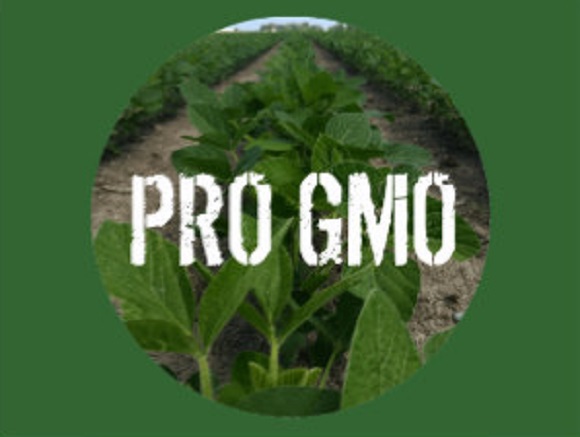
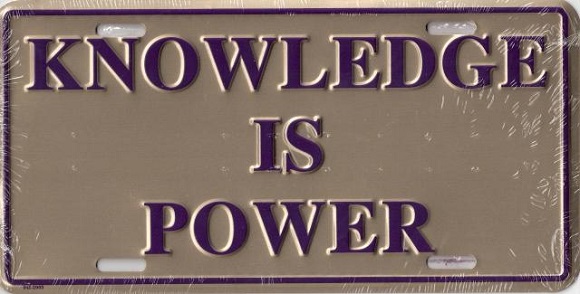

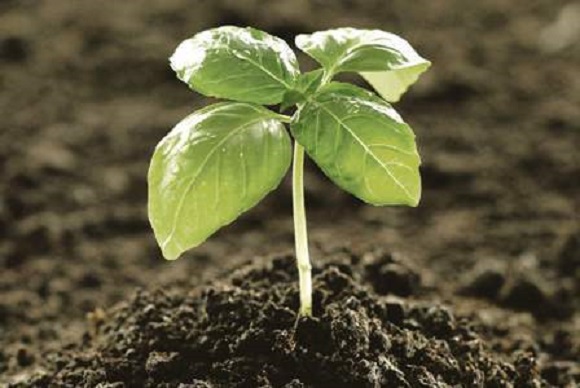






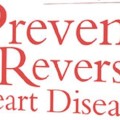
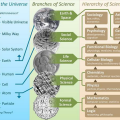
No Comments